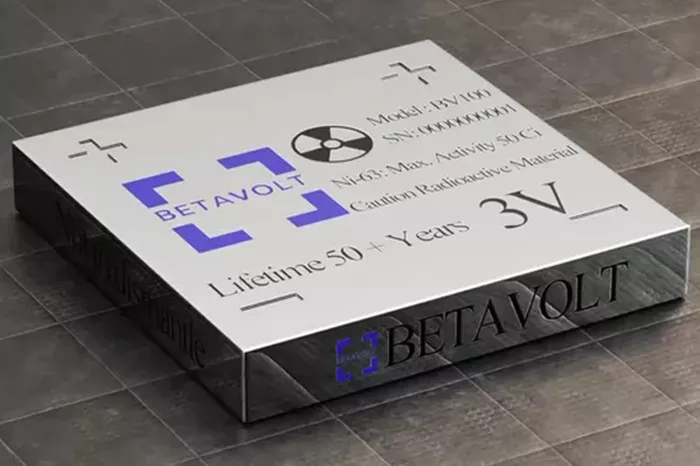In a groundbreaking step for clean energy technology, Wuxi Beita Pharmatech Co., Ltd., in collaboration with Northwest Normal University, has developed a prototype ultra-longevity carbon-14 (C-14) nuclear battery named Zhulong-1. This innovation marks a significant leap in micro-nuclear battery technology, with the potential to change the landscape of energy storage.
Zhulong-1 utilizes C-14, a radioactive isotope with an impressive half-life of 5,730 years, paired with a silicon-carbide (SiC) semiconductor. As C-14 decays, it emits beta particles, which interact with the semiconductor to produce electricity. This process creates a continuous flow of electrons, setting nuclear batteries apart from conventional chemical batteries by converting radioactive decay energy into usable electricity.
One of the key challenges overcome by the team was the preparation of high-specific-activity C-14 sources and improving the energy conversion efficiency and stability of the transducer devices. The battery demonstrates impressive performance, with an LED light powered by Zhulong-1 operating for nearly four months, delivering over 35,000 pulsed flashes. The team also successfully integrated the battery with a Bluetooth chip, which transmitted and received wireless signals.
Named after Zhulong, the mythical Chinese dragon deity symbolizing eternal light and energy in ancient Chinese texts, the Zhulong-1 reflects the combination of rich cultural heritage and the battery’s potential for enduring energy supply. Cai Dinglong, the head of the battery project, noted that the name symbolizes the battery’s long-lasting power.
This achievement signals a significant advancement in energy technology, potentially enabling long-duration energy solutions for a variety of applications, including remote, off-grid, and space-based energy systems.
Related topics:
- Scania Secures Backup Battery Supply Amid Northvolt’s Financial Struggles
- AI Breakthrough Could Transform All-Solid-State Battery Development
- New Manganese-Based Battery Material Promises to Increase EV Range by 20%

